Rottnest Mark 2

VK6ROT
This repeater is off air awaiting a new mast
439.700 MHz - 5 MHz split
123 Hz for access.
Read the early history

Telephoto photograph from the hills, Rottnest in the mist 50 kilometers away. Waiting for a clear day to improve the photograph.
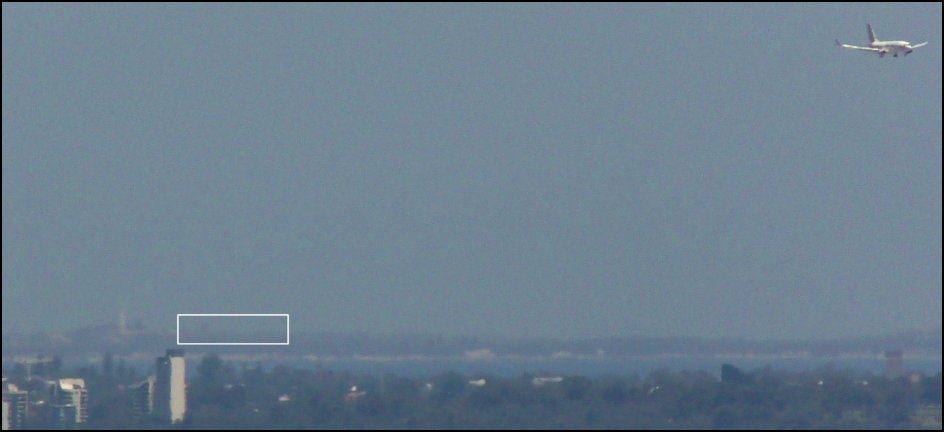
A better photograph of Rottnest, VK6ROT is somewhere in the white box.
|
Repeater
receive frequency 434.700 MHz
Repeater transmit frequency 439.700 MHz No CTCSS required On the 17th October 2015 the Rottnest Island 70cm amateur repeater goes online. After a long period of Inactivity the site is once again an amateur repeater location. On the Island is a pair of Simoco SRM9000 radios in repeater mode. Connected to the repeater is a custom interface box designed by VK6FLEX. This allows remote reprogramming of the site over the Internet. The site is also fitted with an IP controlled relay, allowing remote disable of the repeater's output. This site is a Solar Powered site with enough capacity for additional linking systems. 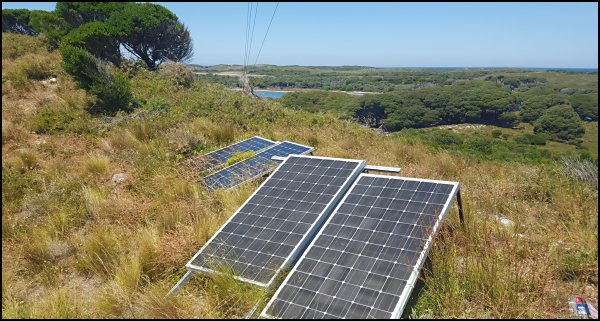 Solar
panels powering the site
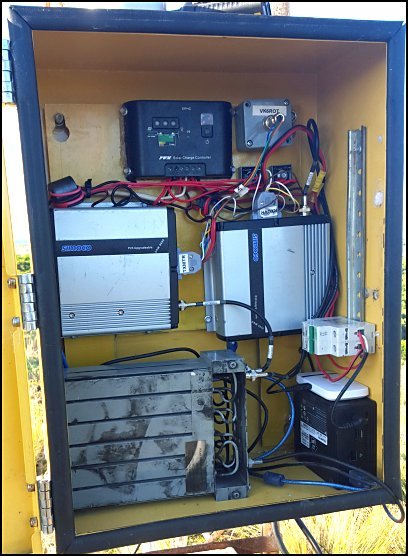 VK6ROT The site is unique in the fact it is located 25kms from the coast of Western Australia, 40 meters above sea level. A ferry ride from the mainland, followed by a bike ride (or walking) 3 kilometers to the site. This gives a
very unique opportunity
for VK6 Amateurs to experiment with ducting up and down the Western
Australian coastline. There are future plans to enable the
repeater as a The site has a long history of amateur radio, dating back to the late 1980's / early 1990's when VK6 Amateurs first decided to install an amateur Repeater on the island. Due to issues with lack of remote control and not easy access it was decided to not go ahead. 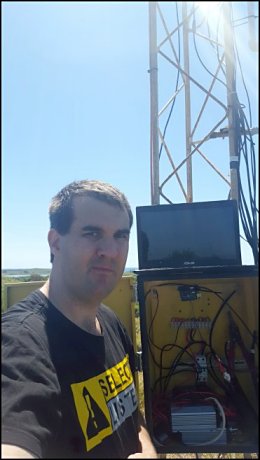 Mitch VK6FLEX at the Rottnest site. 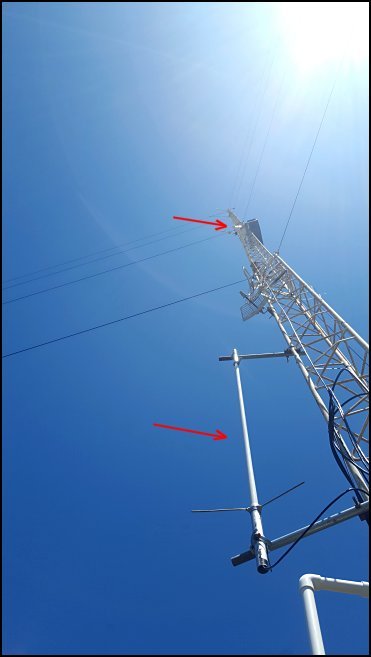 Red arrows show the split antenna setup, for the moment. The
bottom antenna has since been moved to be just above the first set of
Guy wires. This antenna is now duplexed into the repeater's receiver
and transmitter.
|
The original basic setup with the diamond antenna only 10' (3m) above ground level. The site is 29 metres above sea level.
With the antenna at the top of the tower, the ASL doubles.
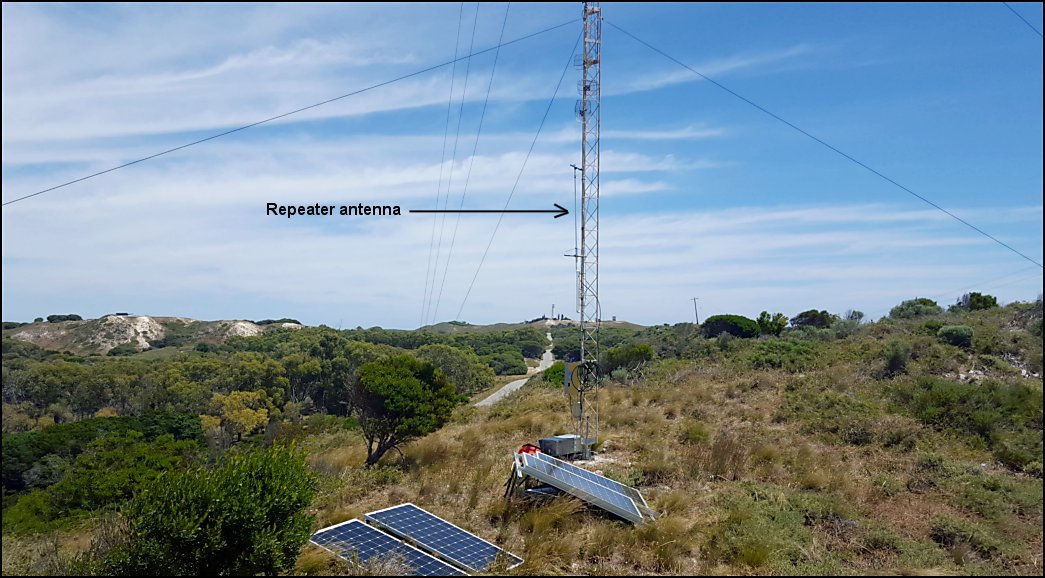
| During Friday the 13th of November, the
antenna was moved a little higher up the mast. It is now 9 metres above ground level. The repeater is also now duplexed into this one antenna. A noticeable increase in coverage has been noted, even with such a small increase in height. 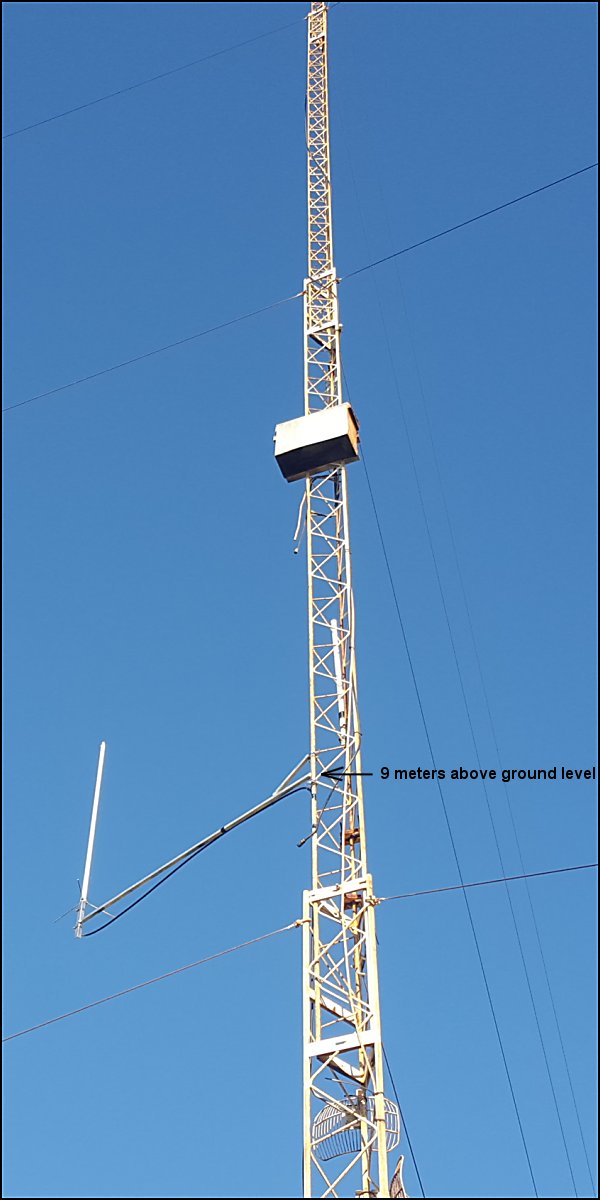 |